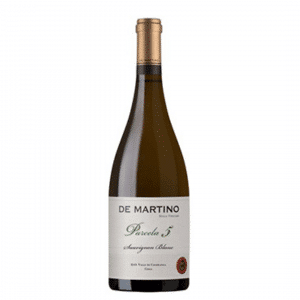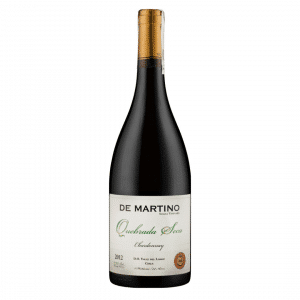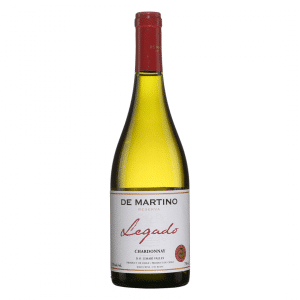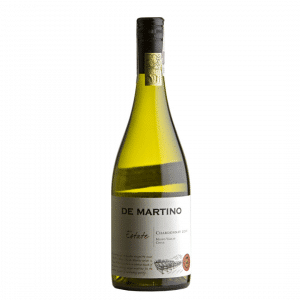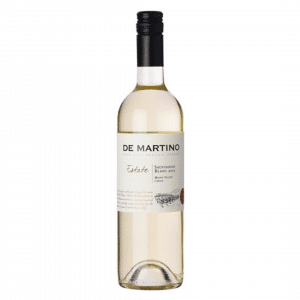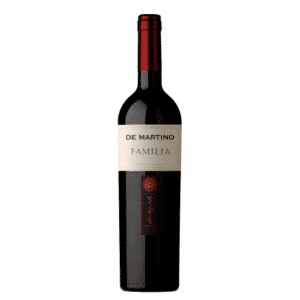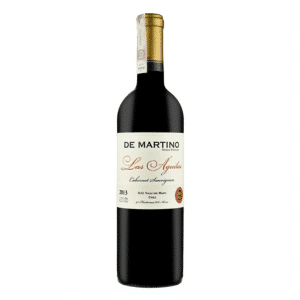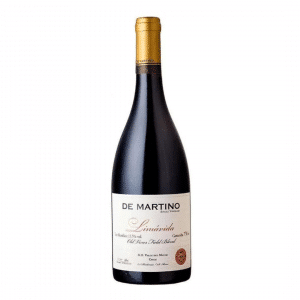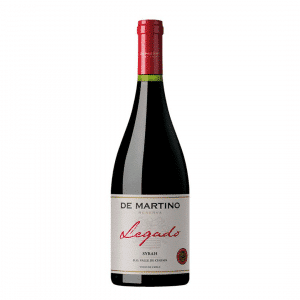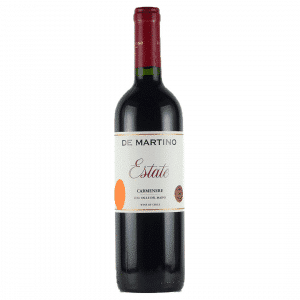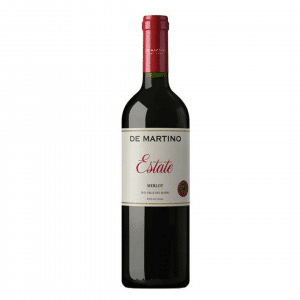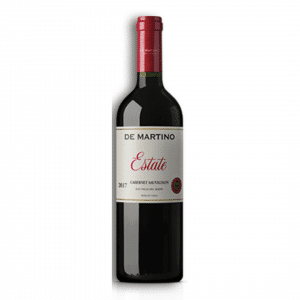De Martino
De Martino - Isla de Maipo - CHILE
Since 1934 and for four generations, the De Martino family has specialised in the production of wines that are an expression
of terroir, of great purity and balance. The company practices sustainable agriculture, vinification
with indigenous yeasts, thus obtaining wines that are a faithful reflection of the vineyards from which
come from.
It is commonplace to think of Chile as a recent addition to the world wine scene, whereas vines have been cultivated in Chile for centuries, since the Spanish conquistadors brought the first vines from Spain in the 16th century.
cultivated for centuries, since the Spanish conquistadors brought the first vines from Spain in the 16th century.
The vine used at that time was the "Pais", an uninteresting variety for quality wines, which is still used for base wines or to produce "Pino".
base wines or to produce "Pisco". A few years later with the introduction of new Bordeaux grape varieties such as
Cabernet-Sauvignon, Carmenere and Merlot, the quality of the wines improved considerably. The modern qualitative
development began in 1980, thanks to new massive investments that improved the wine-making technologies. Today
130,000 hectares of vines are cultivated.
Geographically, Chile seems to be a paradise created for the cultivation of vines.
vine cultivation. From the capital Santiago, for 100 km to the north and 400 km to the south, valleys branch off,
from the Andes down to the sea; Maipo, Rapel, Curicò, Maule, each with its own river, terrain and microclimate,
microclimate. The general climate is also ideal for the vine: the rains fall mainly in winter,
while the dry summer does not favor the development of molds and parasites; the Andean and marine breezes sanitize
further sanitize the grapes. Protected to the north by the Atacama Desert, to the east by the Andean mountain range and to the south by
Antarctic glaciers to the south, Chile has remained unaffected by the phylloxera that devastated European vineyards in the late 19th century. Thanks to this
Chilean vines grow on their own roots, guaranteeing a great advantage in quality and longevity compared to grafted vines.
This explains the success of Carmenere, which arrived in Chile in 1800 before phylloxera completely destroyed it.
phylloxera destroyed it completely in Bordeaux.
Today Carmenere can be considered the true indigenous Chilean grape variety. White varieties such as Chardonnay and Sauvignon
varieties such as Chardonnay and Sauvignon and, in the cooler southern districts, Gewurztraminer and Riesling.
Riesling. The De Martino family, of Italian origin, has been producing wine in the Maipo valley since 1934, when Pietro
De Martino arrived from Genoa with the specific goal of making wine. The winery, still family-owned,
has 300 hectares of vineyards, including the prestigious and unique vineyards on the river Maipo, which, thanks to its breezy climate and gravel-rich subsoil, is the ideal place for making wine.
the gravelly-alluvial subsoil, makes the wines very concentrated and of great balance.
Always animated by
pioneering spirit, the young De Martino brothers have been following for eight years a project of "terroir" zoning
to acquire vineyards in the most suitable territories: Limari, Choapa, Casablanca, Colchagua and Maule. The "De Martino"
also owns the company "Santa Ines" also in Maipo, which has a long tradition in the production of
Carmenere. In 1996 De Martino was the first winery in Chile to label this wine which has now become the
flagship of Chile.
-
Add to WishlistAdd to Wishlist
-
Add to WishlistAdd to Wishlist
-
Add to WishlistAdd to Wishlist
-
Add to WishlistAdd to Wishlist
-
Add to WishlistAdd to Wishlist
-
Add to WishlistAdd to Wishlist
-
Add to WishlistAdd to Wishlist
-
Add to WishlistAdd to Wishlist
-
Add to WishlistAdd to Wishlist
-
Add to WishlistAdd to Wishlist
-
Add to WishlistAdd to Wishlist
-
Add to WishlistAdd to Wishlist
-
Add to WishlistAdd to Wishlist

